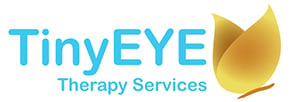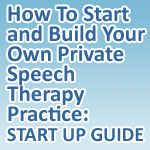Stuttering Overview
- 80% of children between the ages of 18 months and six years will stutter at some point. This is usually age-appropriate and it typically goes away on its own.
- Children may stutter because:
o Their language skills are developing quickly - As they develop vocabulary very quickly, it becomes challenging to retrieve the right words in the right order
o The mouth may have trouble keeping up with all the new language coming out of it
o The mouth may move too fast (rapid speech rate), so they ‘trip' over the words
o They may struggle with word retrieval, sentence formulation, or vocabulary due to a language problem or due to trying to copy an adult's complex speech model
o They may fear talking
o They might just be wired that way
- The stuttering may come and go. It may be more noticeable when:
o The child's emotions are stretched (excited, sad, mad, nervous, exhausted)
o The child has experienced a major life change (new baby, separation, move)
o The child has too much information to share all at once
o The child feels he has to rush or struggle to be heard due to interruptions, a busy pace, or an uninterested listener
o The cup is full - the dam is breaking: Just too much going on for that child that day!
Examples of Normal Stuttering:
o Repetitions of One or a Few Words - "My my ball" "That's my That's my ball"
o Repetitions of Part of a Word - "Mom-mommy catch"
o Rephrasing - "It went - the dog went over there"
o Interjections - Typically used as place holders to ‘buy time' while searching for the next word to say. "It want um my doll"
o The child is unaware or has very little awareness of the stuttering and shows no signs of tension, frustration, or fear during talking.
Examples of Real Stuttering that May Warrant Speech Therapy:
o Sound Repetition - "b-b-b-b-but that's mine"
o Prolongations - "S------un"
o Block - An effortful pause during speech when the sound doesn't come out
o The child attempts to avoid certain words or situations
o The child may start to show frustration or awareness of the stuttering
Helping the Child who Stutters
- Keep a poker-face
- Show no look of shock, surprise, anger etc when the child stutters
o Never ever give instructions such as ‘stop that' or ‘slow down' because this will increase the child's perception of doing something wrong, which can cause anxiety and a negative self-concept
o Model a relaxed, slow pace and show that you have the time to attend to this little communicator
- Listen to the message - not the manner
- Focus on what the child is trying to tell you, rather than how he is saying it
o Let the child know that you like his ideas and his stories
- Face-to-face & forget the race
- Make time to get down to the child's level and maintain comfortable eye contact while the child talks to you
o Smile, nod, and say listening words such as oh, uhuh, and wow
o Let the child feel that there is no need to rush - Be attentive
- Make a date
- "My ears are not ready yet" - If you are unable to listen to a big story at the moment, ask the child to meet you somewhere (at the carpet) sometime (after recess) so your "ears will be ready" to listen to the whole thing.
- Slow and Low
- Speak slowly in a relaxed manner
o Lower the length and complexity of your own sentences
o Children try to imitate the adult's speech model. Keep yours slow and less complex
o Use a lot of pauses. The child may need extra time to process what he is going to say next
- Establish class rules for listening, talking, and turn taking
- Practise turn taking using a ball or a talking stick
o Try to limit interruptions when a child is speaking
o Ensure that one person speaks at a time
o No pressure to talk, especially on bumpy days
o Have down-time each day to slow down the pace
- Be flexible, but Predictable
- Predictable schedules and routines, as well as predictable consequences for behaviour reduce anxiety in children
o Talk about what is planned for the day or what a consequence might be so the child knows what to expect
o If the child is having a bumpy day, do not request a lot of talking. Instead, ask questions that require a yes or no answer or give a choice of two answers. Allow the child to have some quiet play time without forcing interactions
- Talk about it - Normalize it
- If the child is clearly having a hard time with some words and seems frustrated, it is okay to confirm "Oh that was a bumpy word - I had a bumpy word today, too!" "Sometimes its hard to get the word out"
o Occasionally, add gentle repetitions to your own speech, "I I like this book"
o Sometimes if we do not talk about things that are clearly upsetting, it appears as though it should be a secret that shouldn't be discussed. It feels nice when someone understands your plight and that there is no need to hide.
The Key
- The key is to prevent the children from learning to fear talking or to feel anxious about making a talking mistake. (Anxiety can contribute to stuttering.)
- That way, even if the stuttering persists, it will not impede the child's self-concept about talking.
- Goal - "The child will communicate effectively without fear"
If a school district in your area needs Speech-Language Pathologists, please let me know by email as we at TinyEYE can help!


Marnee Brick, MSc
Speech-Language Pathologist and Director of of Speech Therapy
TinyEYE Therapy Services (Speech Therapy Telepractice)
http://www.TinyEYE.com-Online Speech Therapy Telepractice



